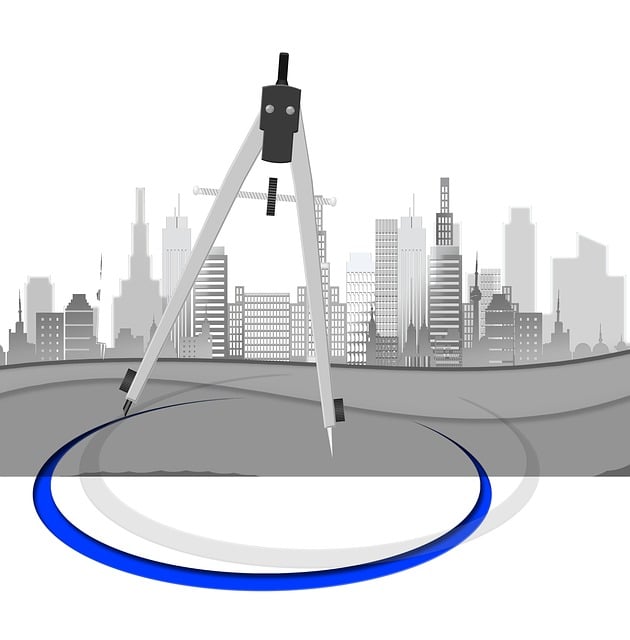Hydronic unit heaters, utilizing heated water circulation via pipes/radiators, offer superior even heat distribution compared to forced air systems. They provide precise temperature control, quick response times, quiet operation, and versatility with adjustable BTU capacity. Ideal for warehouses, industrial, and commercial spaces, these units enhance productivity, energy efficiency, and comfort, replacing traditional heating systems with straightforward installation and regular maintenance.
“Discover the power of hydronic unit heaters for efficient, even heating. This comprehensive guide explores the inner workings of these advanced systems, highlighting how hot water distribution ensures consistent comfort. We delve into the advantages for both residential and commercial settings, from energy savings to improved air quality. Learn about installation best practices, maintenance tips, and why these heaters are becoming a game-changer in today’s market, offering a quiet, effective solution for your space.”
- Understanding Hydronic Unit Heaters: A Comprehensive Overview
- Hot Water as the Secret to Even Heat Distribution
- Benefits of Hydronic Systems in Residential and Commercial Spaces
- Installation, Maintenance, and Energy Efficiency Considerations
Understanding Hydronic Unit Heaters: A Comprehensive Overview

Hydronic unit heaters are advanced heating systems that distribute warmth efficiently through a network of pipes and radiators or underfloor tubing. Unlike traditional forced air heating, these units offer several advantages, making them popular for various applications, from warehouse environments to industrial spaces and commercial buildings. The core concept revolves around circulating heated water through suspended heaters or ceiling-mounted systems, ensuring even heat distribution throughout the space.
This method provides several benefits, including precise temperature control, quick response times, and a quieter operation compared to gas fired units or electric heaters. The BTU capacity of these hydronic systems can be tailored to suit different space requirements, making them highly versatile. Whether it’s a large warehouse or a small office, unit heaters designed for commercial heating applications deliver consistent comfort, contributing to improved productivity and energy efficiency in industrial spaces.
Hot Water as the Secret to Even Heat Distribution

Hot water serves as a secret weapon for achieving uniform heat distribution in hydronic unit heaters. Unlike forced air heating systems that rely on convection currents, hydronic units utilize a network of pipes to circulate hot water throughout industrial spaces or warehouse applications. This method ensures even heating across all areas, making it ideal for commercial heating needs.
The use of hot water allows for a more gradual and consistent heat transfer process compared to gas fired units or electric heaters. Additionally, ceiling-mounted suspended heaters further enhance this effect by distributing warmth evenly from above, eliminating cold spots that can occur with traditional BTU capacity systems. This results in improved comfort and energy efficiency, making hydronic unit heaters an excellent choice for a range of commercial and industrial spaces.
Benefits of Hydronic Systems in Residential and Commercial Spaces

Hydronic unit heaters powered by hot water offer a number of advantages for both residential and commercial settings. One of their key benefits is even heat distribution. Unlike forced air heating systems that can leave cold spots, hydronic units seamlessly radiate warmth throughout the space, ensuring every area receives consistent comfort. This makes them ideal for a wide range of applications, from cozying up in your home to maintaining optimal conditions in industrial spaces and warehouse environments.
Another advantage is their flexibility and energy efficiency. Hydronic systems can incorporate both gas fired units and electric heaters, allowing for customized temperature control tailored to specific needs. Moreover, the ability to suspend heaters ceiling-mounted or at strategic locations enables precise targeting of heat where it’s needed most, enhancing overall energy efficiency. With a focus on providing consistent BTU capacity, these heating systems are proven performers in both residential and commercial settings.
Installation, Maintenance, and Energy Efficiency Considerations

The installation process for hydronic unit heaters utilizing hot water is relatively straightforward, often involving the replacement of existing forced air heating systems. These heaters are typically ceiling-mounted or suspended, offering a discreet and efficient solution for commercial and industrial spaces like warehouses. The key lies in ensuring proper sizing based on the BTU capacity required to heat the desired area evenly.
Regular maintenance is crucial for optimal energy efficiency. This includes regular cleaning of the unit and checking for any leaks in the hot water lines. Electric heaters, gas fired units, or suspended heaters all require specific care depending on their fuel source. For example, gas-fired systems need annual professional inspections to ensure safe operation. Efficient heating systems, such as these hydronic unit heaters, can significantly reduce energy consumption, making them a smart choice for large industrial spaces where consistent and even heat distribution is essential.
Hydronic unit heaters, powered by hot water, offer a superior heating solution with their even heat distribution. This technology is particularly beneficial for both residential and commercial spaces, ensuring comfort and energy efficiency. By embracing these systems, homeowners and businesses can experience improved indoor environments while making sustainable choices. With proper installation, maintenance, and energy-saving practices, hydronic unit heaters are the game-changer in heating technology.
